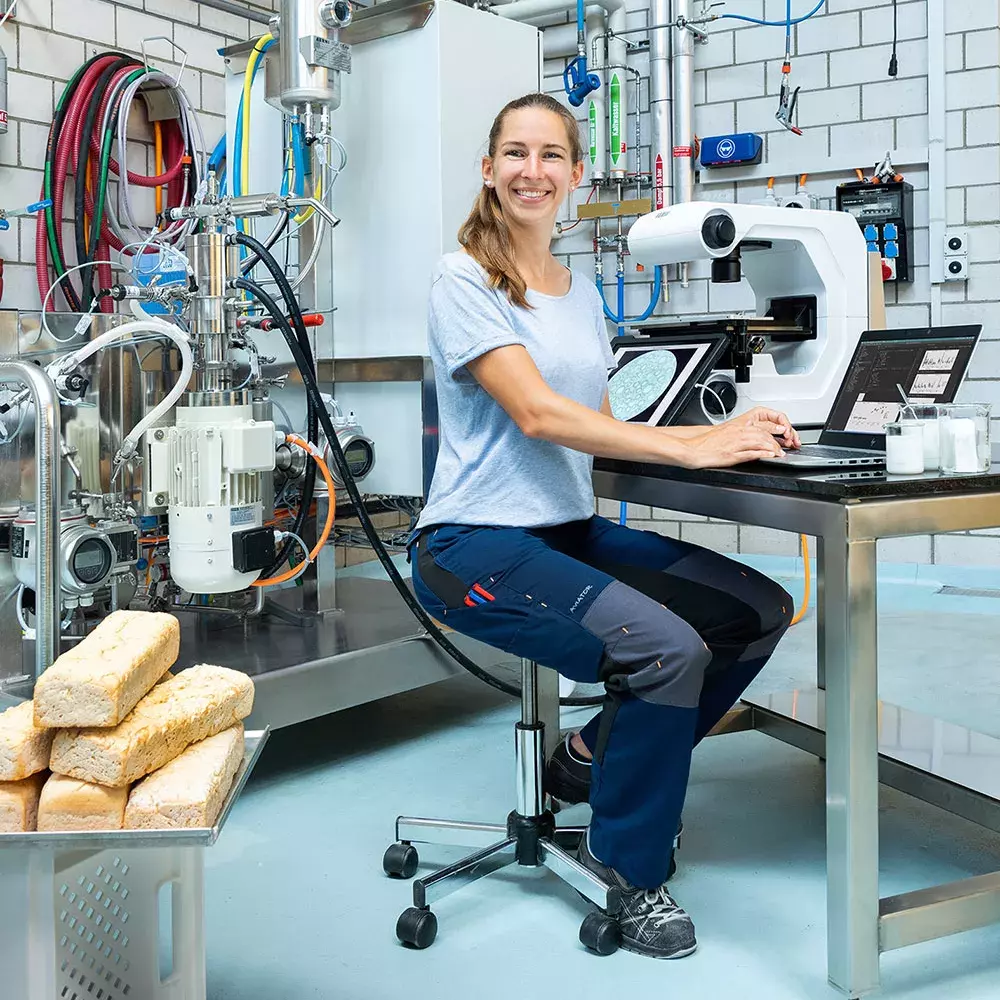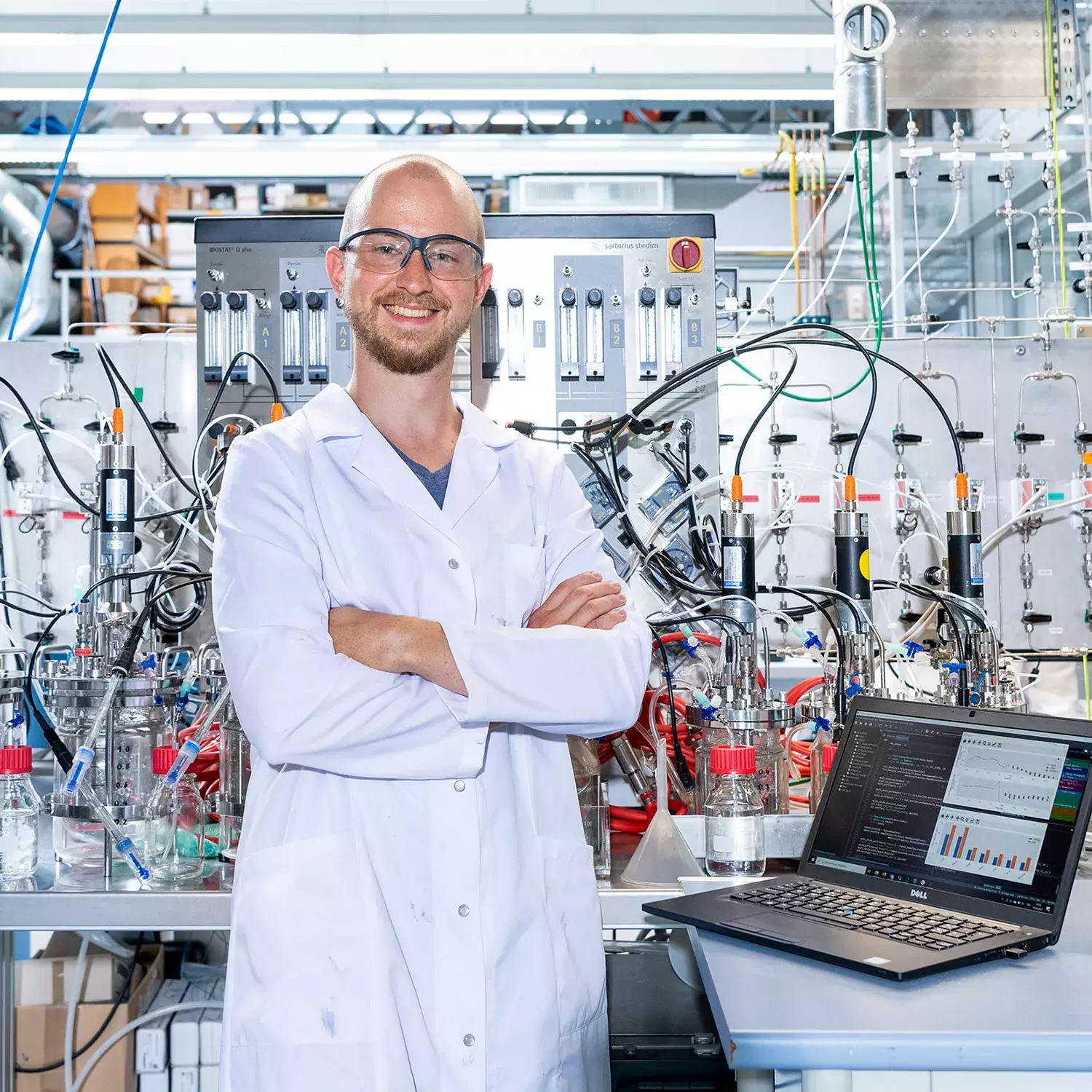Career prospects after studying Applied Digital Life Sciences
The bachelor's degree programme teaches labour market skills and offers excellent job opportunities. The interdisciplinary approach enables you to acquire important and well-balanced competencies that will enable you to assume key functions in the life sciences field.

«Research and applications in the life sciences generate huge and amounts of complex data that must be intelligently processed. This requires interdisciplinary specialists who have expertise in the areas of both life sciences and data sciences. The new degree programme at the ZHAW is the answer to the increased demand for specialists in this field.»
Mario Jenni, Co-founder & CEO, BIO-TECHNOPARK® Schlieren-Zürich
Future-oriented education
Wherever companies or institutions want to use their data for the creation and optimisation of processes, products and services, there is a significant need for specialists who have expertise in data science. Digitalisation is constantly creating new job profiles and tasks in the life sciences, for which you will be well prepared with a degree in Applied Digital Life Sciences.
Salaries following studies
The strong demand for skilled workers with data science skills is also reflected in above-average salaries. The industry, discipline, age and level of seniority all play an important role.
Health sector
In this sector, the main applications are primarily in the acquisition, analysis and utilisation of data from patient-related sensors, devices and imaging methods or in the optimisation of processes in medical diagnostics and healthcare. Overlapping with the pharmaceutical sector, research & development or process automation in the field of drug development is also a relevant field.
Environmental sector
Digitalisation will play a key role in meeting future sustainability and environmental challenges. In this field, developing critical data-based solutions, which combines technical and systemic knowledge, is of central importance. Potential roles include: project team member or project manager at companies, government agencies or consultancies.
Chemistry, biotechnology and pharmaceutical sectors
In this field, there applications are in research & development (e.g. in bioinformatics), but they are above all in the planning and automation of laboratories and processes, in industrial production and in predictive maintenance.
Agro-food sector, including the food industry
Applications are mainly in digitalisation in the agro-sector, for example in smart farming, overlapping with environmental topics, and in the planning and automation of production processes.
Employment possibilities following graduation
The practical training involved in attaining a BSc Applied Digital Life Sciences opens up a wide range of opportunities in a rapidly growing segment of the economy, both in Switzerland as well as abroad. To help you imagine what your future role might look like, we have compiled examples of possible functions in the section below.
Jobs in Digital Health
- Head of clinical trials at a young HealthTec company
- Project manager at a digital diagnostics start-up
- Data analyst at a pharmaceutical multinational or a national research institute
- Developer in data science and artificial intelligence at a medical software company.
Learn more about the Digital Health specialisation.
Jobs in Digital Environment
- Project manager at a large engineering and consulting company in the field of sustainability. In a company where the geoinformatics group develops sustainable IT solutions for energy, mobility, climate change and space, as a project manager, you would be the main interface between the client and the company's internal development department.
- Co-founder of a start-up company for AR technology for infrastructure planning projects
- Research assistant at a national competence centre. In this role you might, for example, analyse the enormous amount of data pertaining to the presence and number of cases of antibiotic resistance or data from the gene sequencing of several hundred soil samples. You would need to be interested in the use of geovisualisation and multifactorial analyses in the investigation and presentation of the data.
Learn more about the Digital Environment specialisation.
Jobs in Digital Labs & Production
- In a smaller company that specialises in niche products in the field of convenience food, you could be hired to digitise the previously very labour-intensive production process, not only to lower costs, but also to increase quality and reduce food waste.
- In a biotech company, you could be the specialist responsible for the development of circulatory systems.
- In a pharmaceutical company, you might develop the necessary software for very specific biotech applications. You could even be in charge of the project.
- As a group leader, you might develop simulation tools for an international company that produces rice mills, which allow various possible system configurations to be demonstrated on a laptop to potential customers.
- After completing your studies, you could establish your own business and advise companies on setting up and operating a digital monitoring system for aquaculture facilities.
Learn more about the Digital Labs & Production specialisation.
Future employers

- Pharmaceutical industry
- Biotechnology companies
- Chemical companies
- Food industry
- Energy, environment and engineering consultancies and organisations
- Agricultural research and advisory services
- Startups
- Hospitals
- Medical technology companies
- Health institutes
- Biomedical research
- ...
Graduate entry level functions

Your broadly applicable competencies will open up many opportunities for you to enter the life sciences:
- Digital expert in life sciences
- Junior data scientist
- Project team member
- Consultant
- Digitalisation manager
- Researcher
- Data analyst
- Data engineer
- Data architect
- ...
Master's degree / continuing education
The ZHAW participates in various master's degree programmes that offer follow-up opportunities. As part of the PhD network in data science, very good students have the option of completing a doctoral programme at the ZHAW in collaboration with the University of Zurich after completing their master's degree.
Of course, a bachelor's graduate, you can also attend further education courses (Mas, DAS, CAS) at either a university of applied sciences or an academic university. The Institute of Computational Life Sciences offers a wide range of advanced training courses in the fields of computational science and artificial intelligence.
Annual conferences are also interesting platforms for exchanging ideas and networking with experts both nationally and internationally.